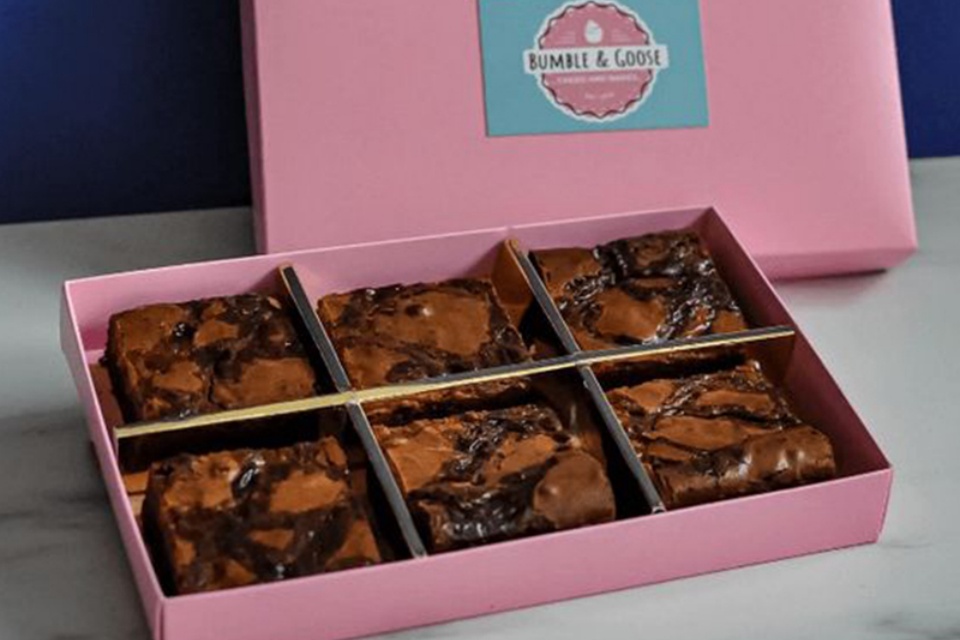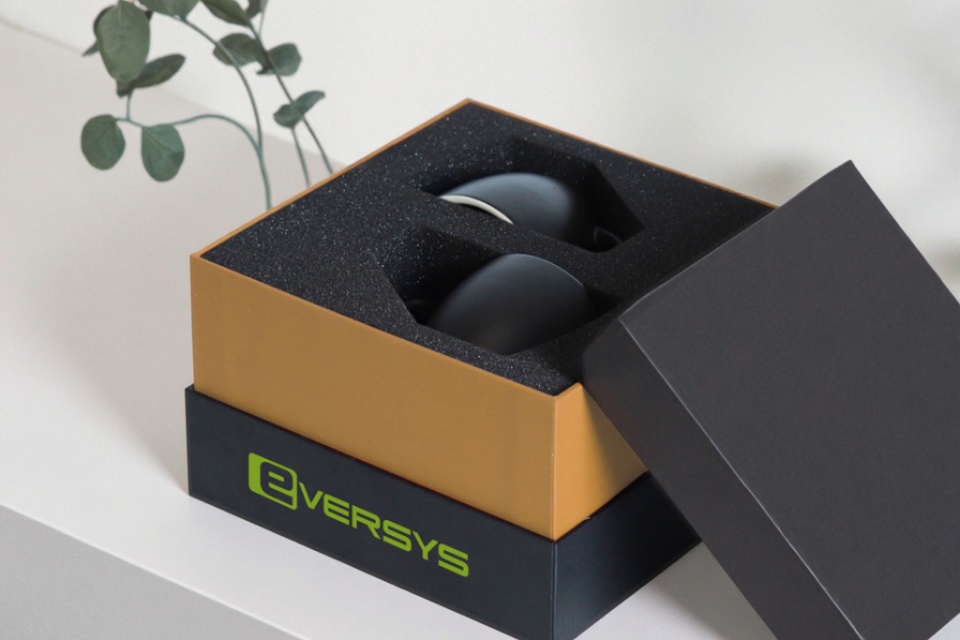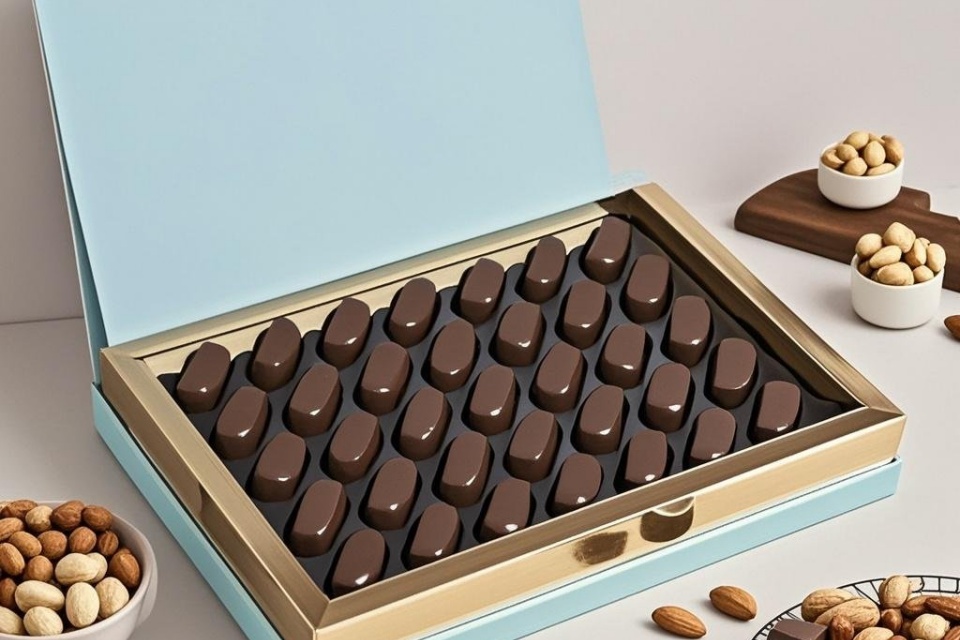Industry News
Custom Bakery Boxes: Tips And Creative Ideas For Pastry Packaging
Custom Bakery Boxes: Tips And Creative Ideas For Pastry Packaging
Summary
Custom bakery boxes are specialized packaging solutions designed to enhance the presentation, protection, and marketing of baked goods. As a critical element in the baking industry, these boxes not only preserve the freshness and integrity of items such as cakes, cookies, and pastries but also serve as a canvas for creative branding and customer engagement. The notable rise in customization options reflects evolving consumer preferences, with bakeries increasingly utilizing unique designs, eco-friendly materials, and interactive features to attract and retain customers.
The importance of custom bakery boxes extends beyond aesthetics; they play a vital role in ensuring product safety during transport and display. With various styles available—such as window boxes that showcase products, clamshell containers that provide secure closure, and eco-friendly options that cater to environmentally conscious consumers—bakeries have numerous choices to meet their specific needs and marketing goals. Furthermore, the growing trend toward sustainable packaging reflects a wider societal push for environmental responsibility, making eco-friendly options not just a marketing advantage but also a consumer expectation.
Controversies surrounding custom bakery boxes often center on the balance between sustainability and functionality. While many bakeries strive to incorporate biodegradable or recyclable materials, the challenge remains to ensure these materials adequately protect baked goods without compromising freshness or presentation. Additionally, the use of smart packaging technologies introduces new discussions about consumer engagement and transparency, as bakeries explore ways to connect with customers through interactive features and enhanced product information.
Overall, custom bakery boxes represent a significant aspect of the baking industry, blending creativity, marketing, and sustainability to enhance the customer experience. By prioritizing design and functionality, bakeries can create memorable packaging that not only captivates consumers but also reinforces brand loyalty in a competitive marketplace.
Types of Custom Bakery Boxes
Custom bakery boxes come in a variety of styles and designs, each tailored to meet specific needs and aesthetics of different baked goods. The selection of the right type of box is crucial for both protection and presentation, ensuring that products remain fresh and appealing during transport.
Common Styles of Bakery Boxes
Window Boxes
Window boxes feature a clear plastic panel that allows customers to view the baked goods inside. This style is particularly effective for items like cupcakes and pastries, as it enhances visual appeal and entices customers while showcasing the quality of the products.
Clamshell Containers
Clamshell containers provide convenience with their easy-open and close feature. These are ideal for packaging items that require secure closure, such as cookies and delicate pastries. Their design helps protect the contents from external factors while allowing for visibility.
Plain Boxes
Plain boxes are typically more cost-effective and serve as a simple packaging option for bulk items. They are versatile and can be used for a variety of baked goods, including bread and muffins, while allowing for easy stacking and storage.
Customization Options
Customization is a growing trend in the bakery industry, with over 80% of bakeries offering tailored packaging options. This includes unique sizes and shapes that ensure products fit snugly within the box, minimizing movement during transport and maintaining their shape and freshness. Additionally, bakeries can print their branding, logos, and promotional messages on the boxes, enhancing brand recognition and marketing efforts.
Eco-Friendly Options
With increasing consumer awareness of environmental issues, many bakeries are opting for eco-friendly packaging materials. Options like biodegradable paper bags and recycled kraft paper boxes are gaining popularity. These materials not only reduce environmental impact but also appeal to customers who prioritize sustainability in their purchasing decisions. Bioplastics made from renewable resources, such as corn starch, are also emerging as effective choices, providing grease resistance and biodegradability.
Design Considerations
Elements of Packaging Design
The design process for custom bakery boxes involves several critical elements, including color, size, texture, and shape. Each of these components plays a significant role in attracting customers and conveying the brand's identity. For instance, colors can evoke specific emotions and align with the overall message of the brand. Black, often associated with elegance and luxury, is frequently used in high-end products, while white symbolizes purity and youthfulness.
Color Psychology
Different colors can influence consumer perceptions and decisions. For example, green is often linked to nature and freshness, making it an ideal choice for environmentally friendly products. Blue, known for its calming effects, can help consumers feel more relaxed when making purchasing decisions. Meanwhile, colors like red and yellow can create a sense of urgency or excitement. Thus, choosing the right color scheme is essential for effective packaging design.
Shape and Structure
The shape of packaging also plays a pivotal role in branding and consumer attraction. Uniquely shaped boxes can help products stand out in a competitive marketplace. For example, angular designs may appeal more to male consumers, while rounded shapes might resonate better with female customers. Furthermore, different shapes can signal specific qualities about the product; angular shapes may suggest intensity or spiciness, while rounded shapes are perceived as softer and more approachable.
Material and Finish
The choice of material is crucial in determining the overall quality and appeal of custom bakery boxes. High-quality materials that are sturdy and visually appealing not only enhance the presentation but also ensure the product's protection during transportation. Additionally, eco-friendly materials are increasingly important to consumers who prioritize sustainability, making it essential for brands to be transparent about their packaging choices.
Target Audience Research
Before embarking on the design process, it is vital to conduct demographic research to understand consumer demands and preferences. This knowledge can guide the development of packaging that resonates with the target audience and differentiates the brand from competitors. By aligning the design with customer expectations, brands can create packaging that effectively communicates their value proposition.
Practical Considerations
Lastly, practical considerations such as regulatory requirements and printing capabilities must be taken into account. Detailed designs may be challenging to print, particularly on smaller packaging, so simplicity can often be more effective. Ensuring that the packaging meets quality standards and remains cost-effective is also crucial for a successful product launch.
Cultural Influences on Design
Cultural influences play a significant role in the design of custom bakery boxes, impacting how consumers perceive products and make purchasing decisions. Understanding and integrating these cultural elements can enhance the effectiveness of packaging and resonate more deeply with target audiences.
Importance of Cultural Sensitivity
Designing culturally sensitive packaging involves thorough research into the cultural backgrounds, values, and traditions of the target market. This understanding is essential for creating packaging that not only attracts attention but also fosters a connection with consumers. Factors such as local customs and regional traditions must be taken into account to ensure that the packaging aligns with consumer expectations and cultural significance.
Examples of Cultural Significance
Regional Variations
Different regions exhibit unique characteristics that shape their packaging styles. For instance, Japanese minimalism reflects cultural values of simplicity and elegance, often resulting in clean, understated designs. In contrast, Indian packaging frequently employs vibrant colors and intricate patterns, celebrating the country's rich cultural heritage and love for festivities. Similarly, Arabic calligraphy is used in many Arabic countries, enhancing the aesthetic appeal of packaging while paying homage to an important cultural art form.
Cultural Celebrations
Packaging often plays a crucial role during cultural celebrations. For example, in Mexico, during the Day of the Dead (Día de los Muertos), the packaging of food offerings includes symbolic elements such as sugar skulls and marigold flowers, which honor deceased loved ones. This type of culturally themed packaging not only conveys the product's purpose but also connects consumers to their cultural practices and traditions.
Adaptation to Modern Trends
As cultures evolve, packaging design must also adapt to contemporary lifestyles while maintaining cultural relevance. For example, traditional bento boxes in Japan have been modified to include compartments that cater to busy urban dwellers, blending cultural practices with modern convenience. Furthermore, the increasing awareness of sustainability has prompted many cultures to innovate their packaging, moving towards eco-friendly materials that align with global efforts to reduce plastic waste.
Creative Ideas for Custom Bakery Boxes
Custom bakery boxes play a crucial role in enhancing the presentation and marketing of baked goods. They not only protect the products but also serve as a canvas for creative expression that can attract customers. Here are several innovative ideas for designing custom bakery boxes.
Eco-Friendly Packaging
With increasing consumer awareness regarding sustainability, using eco-friendly kraft paper for bakery boxes is a popular choice. This type of packaging not only emphasizes a bakery's commitment to the environment but also attracts eco-conscious customers. Customization options, such as adding a brand logo or special artwork, can enhance the visual appeal of these sustainable boxes.
Seasonal and Thematic Designs
Bakeries can capitalize on holidays and special occasions by creating seasonal packaging. Incorporating festive colors, patterns, and graphics tailored to events such as Valentine's Day, Easter, or Christmas can generate excitement and encourage sales. Limited-edition designs create a sense of urgency, prompting customers to make repeat purchases.
Interactive and Engaging Features
Including interactive elements, such as QR codes that link to recipes or social media pages, can enhance customer engagement. Bakeries can also consider adding texture samples or close-up images of their products on the packaging. These features not only make the boxes visually appealing but also serve to strengthen the brand's identity.
Personalized Packaging for Special Occasions
Offering personalized packaging for events like weddings, birthdays, or anniversaries adds a special touch to baked goods. Customized boxes can be designed to match the theme or colors of the event, making the packaging an integral part of the celebration. Including small gifts, such as cookies or personalized notes, further enhances customer experience and loyalty.
Social Media-Friendly Designs
Designing bakery boxes with social media in mind can amplify a bakery's online presence. Boxes should be visually appealing and photogenic, encouraging customers to share their experiences on social platforms. Including branded hashtags and handles on the packaging can facilitate this sharing and boost brand visibility.
Varied Patterns and Styles
Utilizing a range of vibrant patterns and colors can create a distinct identity for different bakery products, such as cupcakes, cookies, and pastries. Collaborating with graphic designers can help bakeries develop unique patterns that resonate with their target audience, making the packaging as memorable as the baked goods inside.
Tips for Selecting Custom Bakery Boxes
When it comes to selecting custom bakery boxes, several key factors should be considered to ensure your products are well-presented and protected while effectively promoting your brand.
Box Size and Shape
Choosing the Right Dimensions
One of the first steps in creating custom bakery boxes is to determine the appropriate size and shape for your baked goods. Each type of product, whether cakes, cupcakes, or cookies, has unique requirements that must be addressed to ensure the items fit snugly and securely. This customization helps prevent damage during transport and enhances the overall presentation of your bakery items.
Material Selection
Understanding Material Options
The material used for your bakery boxes plays a crucial role in both functionality and aesthetics. Options range from eco-friendly materials to traditional paper and plastic. It's essential to match the material to the specific needs of your baked goods; for instance, moist cakes may require plastic or laminated materials that prevent moisture penetration, while drier items may be well-suited to cardboard. Additionally, sustainable packaging is increasingly important to consumers, making eco-friendly options a desirable choice for many bakeries.
Balancing Freshness and Sustainability
Selecting the right material also involves balancing the need for product freshness and sustainability. Understanding how different materials interact with various baked goods can significantly impact product quality and customer satisfaction. As the baking industry moves towards more sustainable practices, incorporating compostable or recyclable materials can enhance your brand's appeal to environmentally conscious consumers.
Design and Branding
Creating a Memorable Experience
Custom bakery boxes are not just about functionality; they also serve as a powerful marketing tool. Designing unique and eye-catching packaging that reflects your bakery's brand identity can help distinguish your products from competitors and enhance brand recognition. Elements such as vibrant artwork, patterns, and personalized messages can create a memorable unboxing experience for customers.
Collaboration with Suppliers
Building Strong Supplier Relationships
A successful custom packaging project often involves close collaboration with packaging suppliers. Establishing clear communication and trust with your supplier can lead to better outcomes in terms of design, pricing, and timely delivery. Regular discussions about your needs can foster innovation and ensure that your packaging aligns with your branding goals.
Cost Considerations
Evaluating Budget Constraints
When selecting custom bakery boxes, it is vital to consider your budget. While premium materials and designs can enhance your product's appeal, they may also significantly impact your pricing strategy. Balancing quality and affordability is essential, especially for small and medium enterprises that may face higher costs for eco-friendly options compared to conventional materials.
By taking these factors into account, bakers can create custom bakery boxes that not only protect their products but also reinforce their brand identity and appeal to customers' preferences.
Benefits of Custom Bakery Boxes
Custom bakery boxes offer numerous advantages that significantly impact the presentation, protection, and marketing of baked goods. These benefits can enhance customer satisfaction, brand recognition, and overall sales.
Protection and Freshness
One of the primary benefits of custom bakery boxes is their ability to protect baked goods during transport and display. By ensuring that products are securely packed, these boxes minimize the risk of damage, which is particularly crucial for shipping or displaying items in retail settings. Additionally, custom bakery boxes can feature airtight seals that help extend the shelf life of products, keeping them fresh and appealing for longer periods. This aspect is vital in retail environments, where freshness directly influences purchasing decisions.
Branding and Marketing
Custom bakery boxes also serve as powerful marketing tools. They allow bakeries to showcase their brand identity through unique designs, colors, and logos, transforming ordinary packaging into a dynamic extension of their marketing strategy. Distinctive packaging captures consumer attention and can significantly influence buying behavior; studies indicate that consumers are more likely to purchase items when they can visually assess the product through clear windows in the packaging. Moreover, effective branding on packaging can foster customer loyalty and create memorable experiences that encourage repeat business.
Customer Engagement and Experience
The design of custom bakery boxes can greatly enhance the overall customer experience. A well-designed box can evoke positive emotions and make a strong first impression, as the packaging often serves as the customer's initial point of contact with the bakery's products. By incorporating personalized touches or storytelling elements, bakeries can deepen the connection with their customers, making the purchasing experience more engaging and meaningful.
Sustainability
With growing environmental awareness, many customers are drawn to bakeries that prioritize sustainability. Offering eco-friendly packaging materials can attract a conscientious customer base and reflect a bakery's commitment to environmental responsibility. This trend not only aligns with consumer values but also differentiates bakeries in a competitive market.
Tailored Solutions
Custom bakery boxes can be tailored to meet specific product requirements, such as size and shape, ensuring optimal protection and presentation. Incorporating features like dividers can prevent product damage, while options for various sizes allow bakeries to accommodate a diverse product range. This adaptability contributes to both the practicality and aesthetic appeal of the packaging, reinforcing the brand's image in the minds of consumers.
Health and Safety Regulations
Ensuring the safety and compliance of bakery products is paramount in food packaging. The regulatory landscape for bakery packaging emphasizes the need for materials that are safe and non-toxic, which is crucial in preventing harmful substances from migrating into food items. Compliance with government guidelines not only protects consumers but also secures the operational longevity of food manufacturing businesses by avoiding costly fines and lawsuits.
Ensuring Safety and Compliance
The sensory qualities of bakery items—taste, texture, and appearance—play a critical role in food safety. Advanced sensor technologies, including pH sensors, are used to measure acidity and flavor control, which can indicate the safety of food for consumption. These sensors can also detect physical attributes like hardness or softness, assisting in identifying food degradation. Moreover, food safety technologies are vital for detecting harmful contaminants such as bacteria (e.g., Listeria, E. coli) and chemicals that may pose health risks, reinforcing public health safety measures.
Packaging Standards
For multilayer packaging, it is essential that any layer in direct contact with food adheres to specific safety requirements outlined in regulations. This ensures that packaging materials do not compromise the safety or quality of the food. Regulatory bodies, like the FDA in the US, set forth guidelines that include labeling laws, which mandate accurate information about ingredients, allergens, and nutritional content.
General and Specific Labelling Requirements
The general labeling requirements for bakery products encompass essential information such as the name of the food, ingredient lists, nutritional panels, and allergen information. Additionally, specific requirements may apply to particular products, such as minimum percentage thresholds for ingredients in types of bread. Ensuring that these labels are truthful and informative is crucial for consumer awareness and safety.
The Role of Smart Packaging
Innovations in packaging technology, such as smart labels, offer enhanced safety features and real-time monitoring capabilities. These advancements facilitate better tracking of products throughout the supply chain and provide consumers with interactive experiences, such as scanning QR codes for additional product information or purchasing directly through smart packaging. As e-commerce continues to grow, such technologies play an essential role in maintaining the safety and integrity of bakery products during transit and delivery.
By adhering to these health and safety regulations, bakeries can ensure that their products remain safe, fresh, and appealing to consumers.
Categories
Latest News
Contact Us
Contact: Aaron Lee
Phone: +8613570866244
Tel: +8675529490260
Add: Li Songlang 2nd Industrial Zone,No.18,FengTang Rd,Guangming New District


